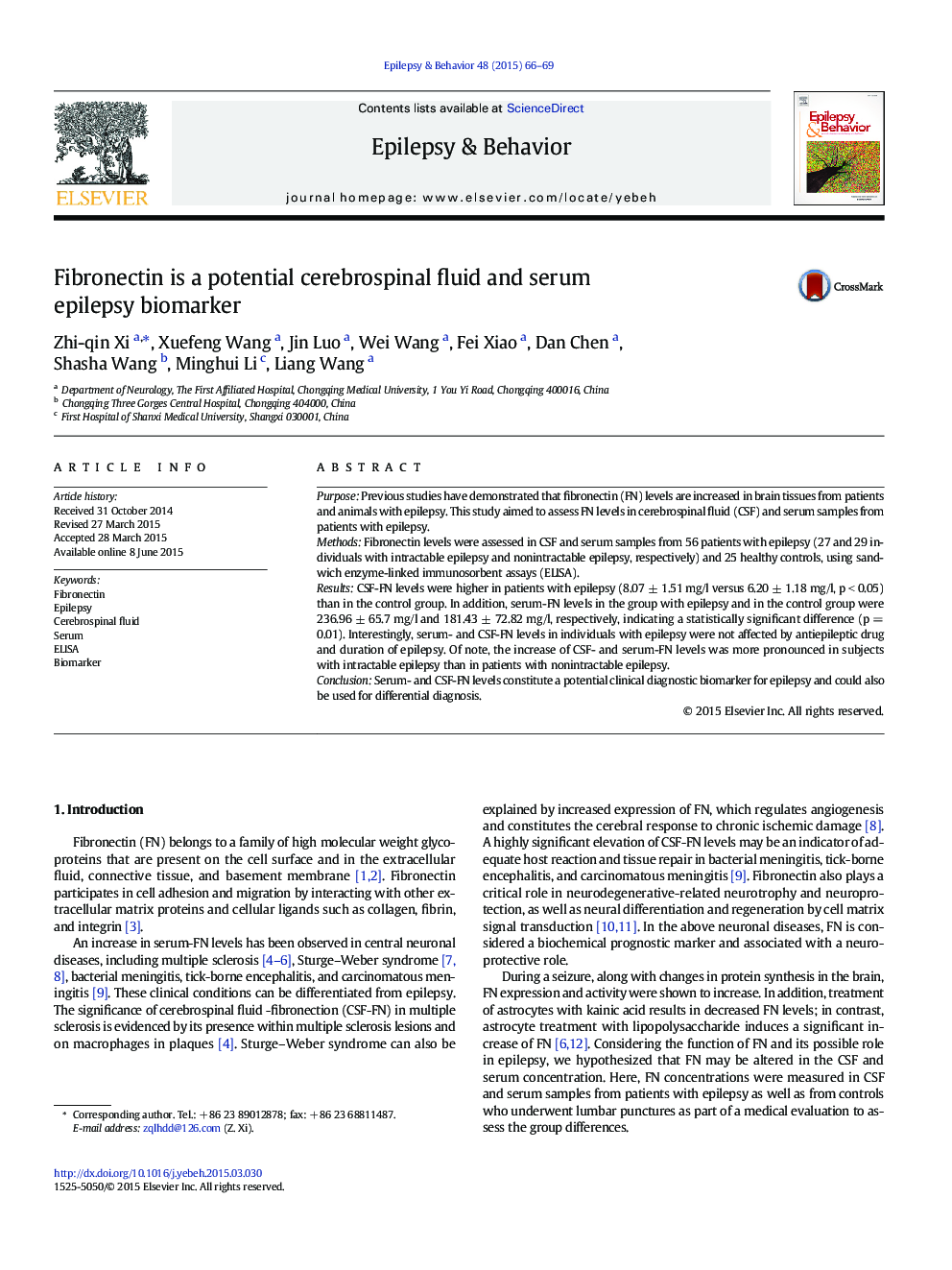| Article ID | Journal | Published Year | Pages | File Type |
|---|---|---|---|---|
| 6011389 | Epilepsy & Behavior | 2015 | 4 Pages |
â¢FN was a potential biomarker in patients with epilepsy.â¢FN in epilepsy was not influenced by AEDs and duration of epilepsy.â¢CSF- and serum-FN levels in epilepsy were increased.
PurposePrevious studies have demonstrated that fibronectin (FN) levels are increased in brain tissues from patients and animals with epilepsy. This study aimed to assess FN levels in cerebrospinal fluid (CSF) and serum samples from patients with epilepsy.MethodsFibronectin levels were assessed in CSF and serum samples from 56 patients with epilepsy (27 and 29 individuals with intractable epilepsy and nonintractable epilepsy, respectively) and 25 healthy controls, using sandwich enzyme-linked immunosorbent assays (ELISA).ResultsCSF-FN levels were higher in patients with epilepsy (8.07 ± 1.51 mg/l versus 6.20 ± 1.18 mg/l, p < 0.05) than in the control group. In addition, serum-FN levels in the group with epilepsy and in the control group were 236.96 ± 65.7 mg/l and 181.43 ± 72.82 mg/l, respectively, indicating a statistically significant difference (p = 0.01). Interestingly, serum- and CSF-FN levels in individuals with epilepsy were not affected by antiepileptic drug and duration of epilepsy. Of note, the increase of CSF- and serum-FN levels was more pronounced in subjects with intractable epilepsy than in patients with nonintractable epilepsy.ConclusionSerum- and CSF-FN levels constitute a potential clinical diagnostic biomarker for epilepsy and could also be used for differential diagnosis.
